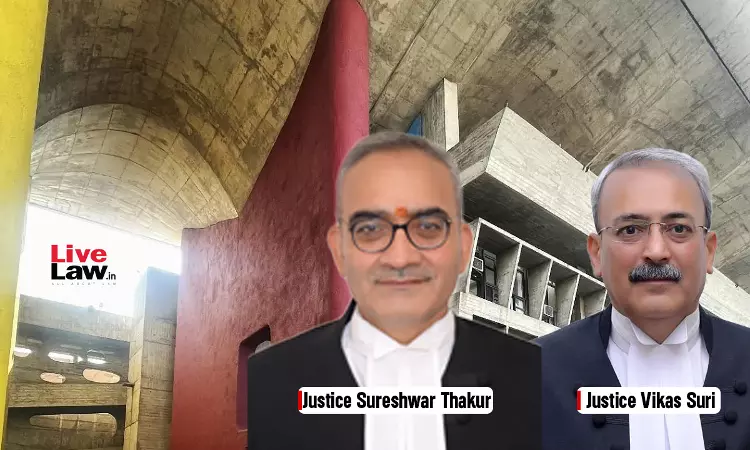- Home
- /
- High Courts
- /
- Punjab and Haryana High Court
- /
- Provision On Adherence To Sanction...
Provision On Adherence To Sanction Plan By Promoter Under RERA Act Will Prevail Over HRERA Rules In Case Of Conflict: Punjab & Haryana HC
Aiman J. Chishti
5 May 2025 6:57 PM IST
The Punjab and Haryana High Court has made it clear that in the event of any conflict between Rules of the Haryana Real Estate Regulatory Authority (HRERA) and Section 14 of the Real Estate (Regulation and Development) Act, 2016 (RERA), the latter will prevail.A division bench of Justice Sureshwar Thakur and Justice Vikas Suri said, "Therefore, the test of inconsistency or repugnancy inter se...
The Punjab and Haryana High Court has made it clear that in the event of any conflict between Rules of the Haryana Real Estate Regulatory Authority (HRERA) and Section 14 of the Real Estate (Regulation and Development) Act, 2016 (RERA), the latter will prevail.
A division bench of Justice Sureshwar Thakur and Justice Vikas Suri said, "Therefore, the test of inconsistency or repugnancy inter se the HRERA Rules, and, the provisions enclosed in Section 14 of the RERA Act, becomes rested upon the mandate enclosed in Section 14 of the RERA Act. If in the HRERA Rules, there was a provision inconsistent with the provisions embodied in Section 14 of the RERA Act, thereupons the provisions enclosed in Section 14 of the RERA Act, rather would have an overriding effect over the purportedly inconsistent therewith provisions embodied in some other statute."
Section 14 of RERA Act pertains to adherence to sanctioned plans and project specifications by the promoter
The Court also clarified that HRERA Act and RERA Act both covers distinct sphere, as HRERA Act would apply to the fields relating to the issuance of licences. RERA will apply to the field relating to regulating the use of land in order to prevent ill- planned and haphazard urbanisation.
"Tritely, the HRERA Rules occupy those fields relating to the issuance of licence to the builders, besides occupy the field qua upon apposite breaches thereofs being made, thereupon the power of resumption becoming vested in the authority created thereunder," said the Court.
It added further that the Act of 1975 occupies the field relating to regulating the use of land in order, to prevent ill-planned and haphazard urbanization in or around towns and for development of infrastructure sector and infrastructure projects, rather for the benefit of the State of Haryana.
Facts In Brief
The petitioner, responding to the advertisement and marketing brochures of the group housing project named “Windchants,” had deposited the earnest money and purchased the flats. The zonal plan was approved, along with the revised building plan. However, the project was not completed within the stipulated time. The petitioner approached the NCDRC with pleas regarding an increase in the sale area and a demand for enhanced compensation due to the delayed delivery of possession. The former plea was decided in favor of the petitioner, while the latter was dismissed, even at the later stage by the Supreme Court.
It was averred by the petitioner that the building does not have an occupancy certificate or a completion certificate as required under the RERA Act. The respondents demolished the illegally constructed EWS units after this issue was raised. It was also contended that the respondents are bypassing the RERA Act by claiming that the project is being developed in phases.
That the building plans are sanctioned and modified under the Haryana Scheduled Roads and Controlled Act, 1963 (for short 'the Act of 1963'), and, that Section 23 of the Act of 1963, provisions whereof become extracted hereinafter, thus contains a non-obstante clause and which has an overriding effect
The plea sought directions upon the respondents, to furnish the complete status of the project and conduct a fresh site inspection in the presence of buyers' representatives to determine all violations of sanctioned plans.
After hearing the submissions the Court noted that the petitioners are aggrieved from the granting of the occupation certificate, they may raise the same before the competent authority concerned
Consequently, the plea was dismissed.
Title: Parveen Gambhir and others v. Union of India and others
Click here to read/download the order



